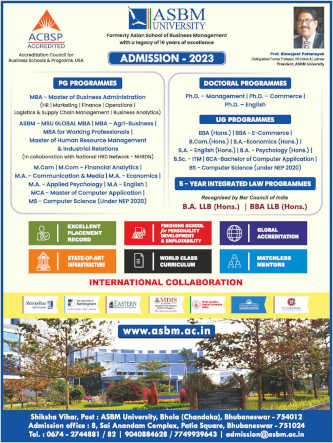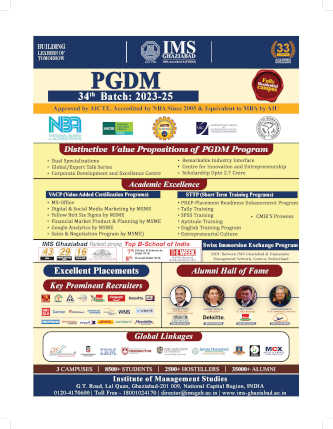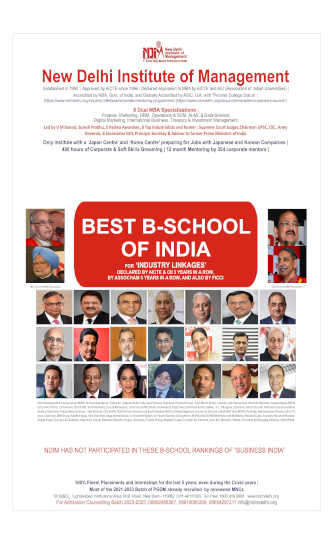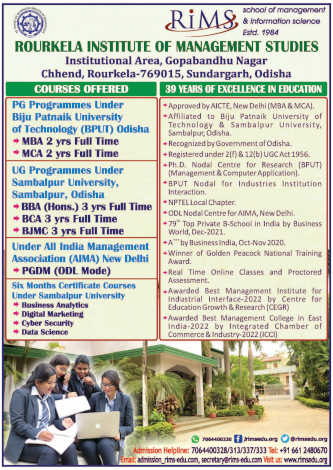
At a time when MBA graduates are commanding huge salaries, there is a group of youngsters who are willing to take the risk of entrepreneurship and are turning towards entrepreneurship education. That I think speaks volumes about the space that entrepreneurship per se (and education in the area), has created for itself. Entrepreneurship is today a global phenomenon. Considering its benefits to the entrepreneur and the economy, most universities, including international universities and management institutes, have started offering it as a full-fledged course or an elective. I would like to believe that management education and entrepreneurship education are complementary to each other with the former creating ‘managers’ – who are the executors and the latter creating ‘entrepreneurs’ – who are the architects of business. A manager is always more successful if he/she possesses entrepreneurial resourcefulness (or intrapreneurial traits as we call it), while on the other hand, an entrepreneur, in addition to entrepreneurial competencies will also need managerial skills to succeed.
Management Education has acquired great momentum across the globe. An MBA programme primarily imparts specialised management skills that create a professional-manager. For a long time the management curriculum had remained standardised, and did not really accommodate knowledge in relation to the changing context of the business world. Western models were more highlighted and analysed, so much so that this education started losing its application-orientedness in the Indian context. However, lately I believe the curriculum has undergone changes to befit Indian as well as global contexts. The focus is on imparting both hard and soft skills, alongside knowledge, as these are mandatory for right orientation. Management graduates are, therefore, well-prepared to execute business plans and strategies.
However, when we look into the curriculum of entrepreneurship courses, it is applied with a more judicious mix of various aspects of management and behavioural science. The key differentiators between management and entrepreneurship courses are, in an entrepreneurship course there is focus on risk propensity and the soft-skills of entrepreneurs; identification & evaluation of business opportunities; detailed project report or business plan of an enterprise; and support system institutions and implementation strategy. Through these focused lessons entrepreneurship education prepares an individual who adopts entrepreneurial thinking as a way of life. The structured curriculum trains participants to take up an entrepreneurial career, including the creation of new enterprises through product or services innovation, product development, or value chain creation.





























